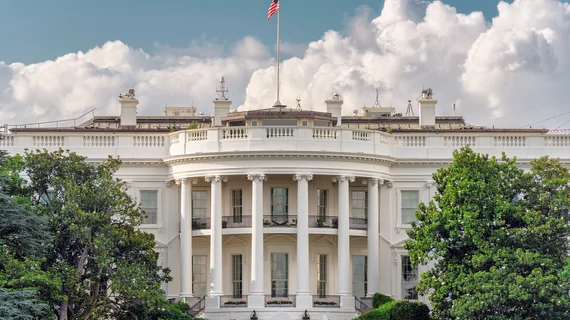Biden administration to repeal Trump-era rule granting faster Medicare breakthrough device coverage
The administration on Monday revealed plans to repeal a controversial Trump-era rule granting speedier reimbursement for “breakthrough” medical devices.
CMS finalized the Medicare Coverage of Innovative Technology proposal in January ahead of the White House changeover. It would have eliminated lag time between the Food and Drug Administration approving new technologies and the federal payment program covering them, granting seniors faster access to innovative treatments.
But after postponing implementation from May to December, federal officials are now repealing MCIT following negative feedback.
“We believe that the finalized…rule is not in the best interest of Medicare beneficiaries,” the Centers for Medicare & Medicaid Services said in a notice slated to be published in the Federal Register Sept. 15, arguing that the change could result in coverage “without adequate evidence that the breakthrough device would be a reasonable and necessary treatment for the Medicare patients.”
“While the rule tried to address stakeholder concerns about accelerating coverage of new devices, significant concerns persist about the availability of clinical evidence on breakthrough devices when used in the Medicare population, as well as the benefit or risks of these devices with respect to use in the Medicare population upon receipt of coverage,” the notice stated.
Device manufacturers praised the MCIT rule earlier this year labeling it a “major regulatory win,” but bristled when the new administration postponed it. AdvaMed (short for the Advanced Medical Technology Association) called Monday’s announcement “unfortunate” and said it will continue lobbying Congress and the administration to move forward with the proposal.
“Any Medicare patient and their doctor who has exhausted all existing medical options should have immediate access to FDA-approved breakthrough medical technologies,” President and CEO Scott Whitaker said Sept. 13. “That’s what this is all about. Doctors and patients should be trusted to make the right medical decision to treat a life-threatening condition.”
On the other side, stakeholders such as the American College of Radiology have expressed concerns around the lack of transparency and inability to comment on devices considered for expedited coverage. Consumer advocates and health insurers also worried the change could pose patient safety risks for seniors.
Under the rule, CMS would have granted simultaneous national coverage with FDA approval, up to a period of four years. After that, the feds would have reevaluated the device based on clinical data to determine whether payment should persist.
The administration is accepting comments on the repeal decision through Oct. 15.

